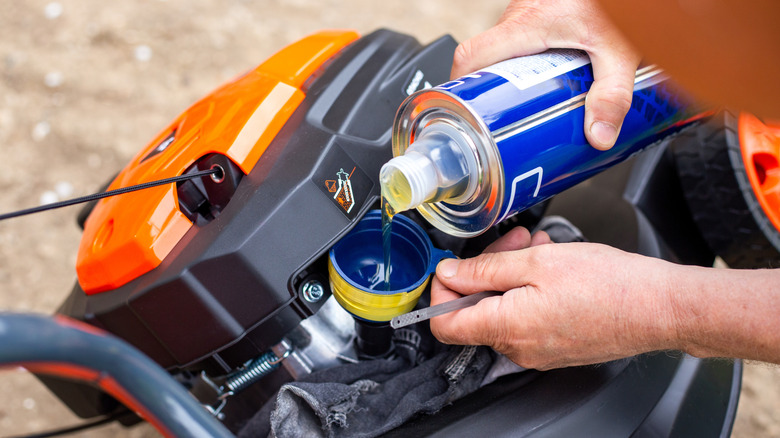Can You Use Synthetic Oil In A Lawn Mower?
Just in the same way that your car or truck needs servicing, your lawn mower requires maintenance too. That's why it's important you know how often you should be changing your lawn mower's blade, when to change the oil, and what type of oil you can use. Synthetic oils are becoming more and more common in the automotive industry, but you might not know whether or not such oils are considered safe to use for your garden mower too.
While older lawn mowers won't generally suggest the use of synthetic oils in its manual, many newer models are being built to be compliant with synthetic fluids. Manufacturers such as Briggs & Stratton have recently changed its oil recommendations to include synthetic 5W30 and/or 10W30 synthetic oils, although it's important to note that the use of synthetic oil does not alter other aspects of maintenance. For instance, the engine break-in period remains the same, as does the intervals for regular oil inspections and changes. Briggs & Stratton even offer its own range of fully synthetic oils now too, which complies to warranty requirements with regards to the use of appropriate oil.
Here's why synthetic oil is great for your lawn mower's engine
If you're on the fence about whether to use conventional or synthetic engine oil for your lawn mower, reviewing the added benefits of a synthetic oil may help to warrant the decision. One of the main attractions of synthetic engine oil is that all of the impurities have been removed. This isn't the case with conventional oils, and these impurities can increase the amount of wear and tear within your lawn mower engine over time.
Synthetic engine oils also boast a longer service life which technically does mean you can go longer between services. As mentioned above, many manufacturers like Briggs & Stratton will still recommend you complete services at the same intervals regardless of whether you use synthetic oils or not. Some may feel comfortable prolonging these intervals however, when using synthetic oils, and doing so may help to justify the extra price commanded by synthetic oils.
Another main advantage of synthetic oils is that they can tolerate heat better, without breaking down or oxidizing like conventional oils. This is especially important for lawn mowers, which sport small engines that work often in hot and direct sunlight, meaning engine temperatures can quickly soar. Synthetic oils in situations like this will help to keep the motor running as smoothly and efficiently as possible. Conventional oils can produce by-products such as tar and sludge in situations too, which will only reduce the efficiency of your lawn mower's engine over time.

